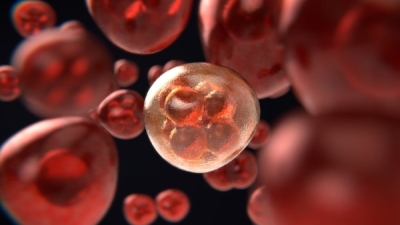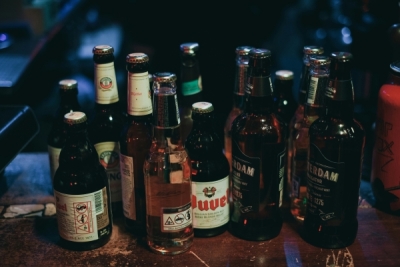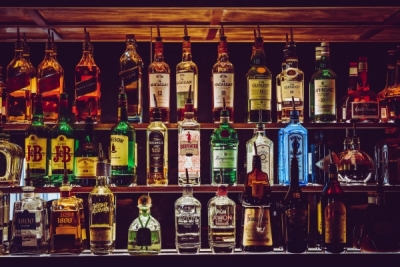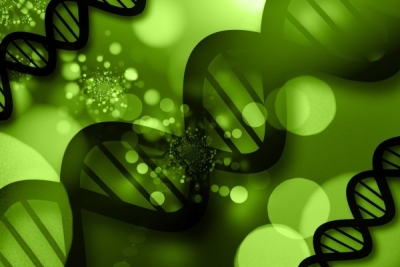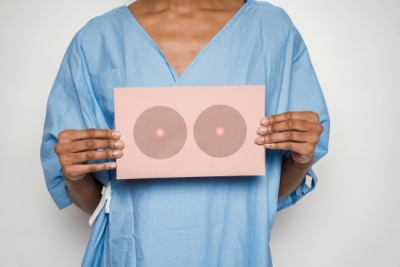Cancer is one of the leading death causes worldwide, accounting for approximately 10 million deaths in 2020, or nearly one in six deaths (1). About a third of cancer deaths are due to 5 risk factors: high body mass index (BMI), low consumption of fruits and vegetables, lack of physical activity, tobacco use and alcohol consumption (1). As these are factors linked to lifestyle, they can be modifiable, hence the importance of awareness and prevention.
Excess alcohol has a carcinogenic potential, that is, it can cause cancer. And, currently, studies indicate that it is related to seven types of the disease: oral cavity, pharynx, esophagus, colon, rectum, liver and breast (2). According to the Global Cancer Observatory, 4.1% of new cases in 2020 were attributable to alcohol consumption and, according to the Global Burden of Disease, Injury and Risk Factors Study (GBD, 2019), 4.9% of deaths by cancer in 2019 were attributable to harmful use of alcohol3.
Effects of alcohol on breast cancer (4)
The involvement of alcohol consumption in breast cancer is a complex process that acts through several mechanisms. And although alcoholic beverages contain a variety of compounds that contribute to carcinogenesis (cancer formation process), alcohol itself seems to be the most important component in this case.
However, the underlying mechanisms for alcohol and breast carcinogenesis remain to be clarified. Potential mechanisms include: oxidative stress, cell proliferation, effects on hormones (particularly steroid hormones), and effects on one-carbon metabolism.
When ingested, alcohol is metabolized into acetaldehyde, classified as a carcinogen by the International Agency for Research on Cancer (IARC), an institution that is part of the World Health Organization. Although the production of acetaldehyde from alcohol mainly occurs in the liver, it also occurs in the breast tissues and one of the adverse effects of acetaldehyde includes DNA modifications. There is evidence that acetaldehyde can concentrate in breast cells. In a study of experimental animal models, for example, acetaldehyde accumulated and persisted at higher concentrations in breast tissue than in blood.
In addition to the carcinogenic effects of acetaldehyde on breast tissue, hormonal effects due to alcohol consumption can also contribute to breast cancer. Drinking alcohol increases hormone levels. A study in adult premenopausal women showed that alcohol intake has been associated with higher circulating levels of estradiol and estrone. Another study reported that consumption of 30g of ethanol (~2.5 drinks) per day for three menstrual cycles was associated with a 28% increase in plasma estradiol and a 21% increase in plasma estrone among women of 21 to 40 years (5). Elevated levels of intracellular estrogen resulting from alcohol intake can promote cancer-related cell proliferation in breast tissue.
According to the IARC, the risk of developing breast cancer increases by 7 to 10% for every 10g (∼1 dose) of alcohol consumed daily by adult women. This association is observed in both premenopausal and postmenopausal women. Compared with other organs, the breast appears to be more susceptible to the carcinogenic effects of alcohol. This raises a clinical and public health concern, because nearly half of women of childbearing age drink alcohol and 15% of drinkers of that age drink four or more drinks in one occasion (5). In Brazil, for example, a study carried out by FIOCRUZ (6) with more than 1,500 women under 50 years of age showed that those who regularly consumed alcohol for 10 years or more had a three times greater risk of developing breast cancer compared to women who were abstainers or occasional drinkers.
Prevention
We are approaching Pink October, whose main objective is to alert women and society about the importance of prevention and early diagnosis of breast cancer. According to WHO, in 2020 there were more than 2 million new cases of breast cancer and 685 thousand deaths due to the disease. In 2021, in Brazil, the estimate was 66,280 new cases of breast cancer, with an estimated risk of 61.61 cases per 100,000 women (7).
The main signs and symptoms of breast cancer are: lump (nodule), usually hardened, fixed and painless; reddened or orange-peel-like breast skin; changes in the nipple and spontaneous outflow of fluid from one of the nipples. Small lumps may also appear on the neck or under the armpits.
CISA warns: healthy habits are the key to preventing breast cancer and other diseases, so try to practice physical activity, maintain adequate body weight, adopt a balanced diet and, if you decide to drink, consume in a moderate way. The Ministry of Health recommends that all women have a mammogram starting at age 50. The Brazilian Societies of Cancerology and Mastology by their turn recommend that from the age of 40 the exam should be done annually. Take care of yourself!


